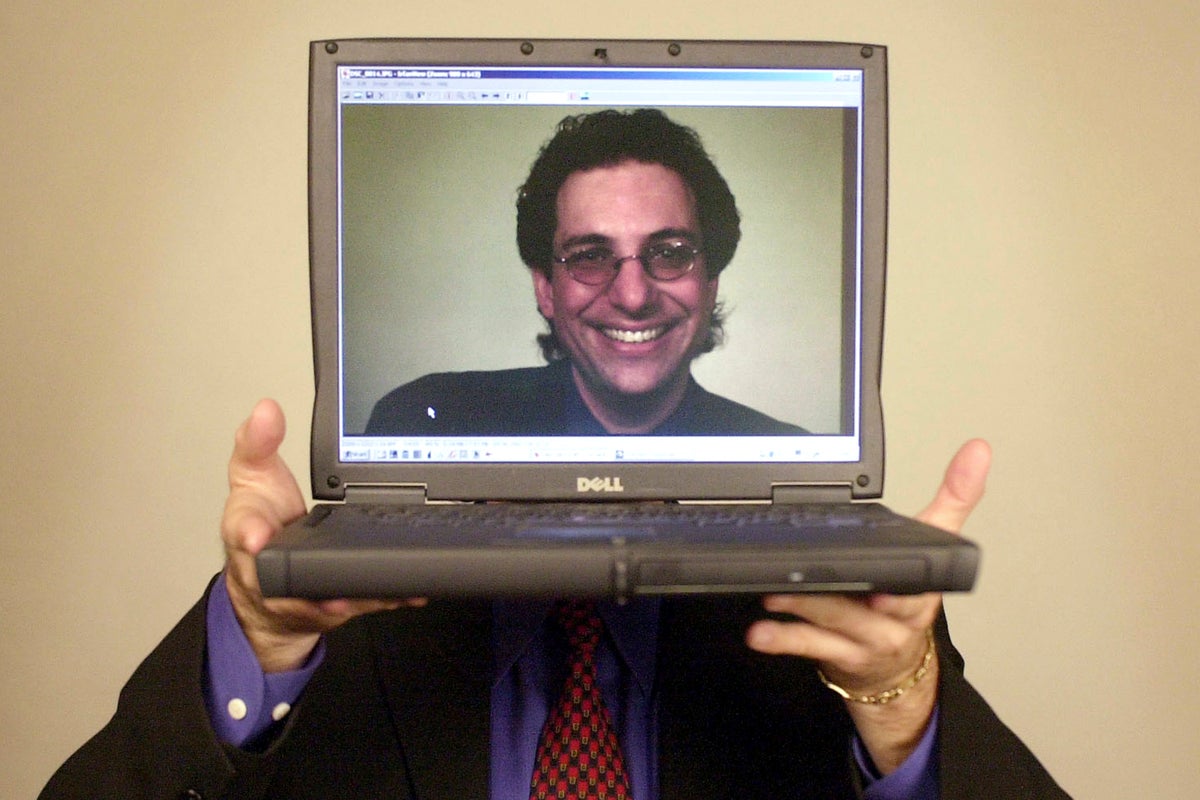
Kevin Mitnick, who was once one of the most wanted computer hackers in the world, has died at the age of 59.
Mitnick died Sunday in Las Vegas after a 14-month battle with pancreatic cancer, said Stu Sjouwerman, CEO of the security training firm KnowBe4, where Mitnick was chief hacking officer.
He spent five years in prison for computer and wire fraud following a two-year federal manhunt in the 1990s, but after his release in 2000 reinvented himself as a “white hat” hacker, renowned cybersecurity consultant and author.
Computer hacker turned author Kevin Mitnick poses for a portrait Thursday, June 27, 2002, in Las Vegas. Mitnick— (AP2002)
“Kevin was an original; much of his life reads like a fiction story. The word that most of us who knew him would use – magnificent,” stated his obituary.
“He grew up brilliant and restless in the San Fernando Valley in California, an only child with a penchant for mischief, a defiant attitude toward authority, and a love for magic.
“Kevin’s intelligence and delight in holding the rapt attention of audiences revealed themselves early in his childhood and continued throughout his life. In time, he transitioned from pranks and learning magic tricks to phone phreaking, social engineering, and computer hacking.”
Mitnick grew up in Los Angeles and broke into a North American Air Defense Command computer as a teenager.
In the 1990s he went on a hacking spree that saw him break into the country’s cell networks, breach government computer systems, and steal thousands of credit card numbers and data files. There is no evidence he ever used any of the 20,000 credit card numbers.
“He never hacked for money,” said Mr Sjouwerman, who became Mitnick's business partner in 2011. He was mostly after trophies, chiefly cellphone code, he said.
Mitnick talks to the media in Los Angeles in 2000— (AP2000)
The government accused him of causing millions of dollars in damages to companies including Motorola, Novell, Nokia and Sun Microsystems by stealing software and altering computer code.
When he was eventually released from prison, Mitnick told reporters that he had committed “simple crimes of trespass.”
”I wanted to know as much as I could find out about how phone networks worked,” he said.
“My hacking activity actually was a quest for knowledge, the intellectual challenge, the thrill and the escape from reality,” Mitnick said during a March 2000 congressional hearing in response to a question by Sen Joseph Lieberman, about what motivated him.
In his prepared testimony, Mitnick boasted that he had “successfully penetrated some of the most resilient computer systems ever developed.”
Mitnick had first been arrested for computer crimes at age 17 for walking into a Pacific Bell office and taking a handful of computer manuals and codes to digital door locks. For that, he served a year in a rehabilitation centre, deemed by a federal judge as being addicted to computer tampering.
During his five-year prison sentence, Mitnick was reportedly placed in solitary confinement for nine months because officials were worried he could emulate a modem by whistling into a payphone and “hack NORAD and trigger a ballistic missile” causing a nuclear war.
Mitnick is survived by his wife, Kimberly, a native of Australia who is expecting a baby later this year.







